Description
An orange-colored clownfish with three white stripes. Black margins are found on the edges of all fins and the borders of the white stripes. Similar to theAmphiprion ocellaris, exceptAmphiprion perculahave more black color bordering the white stripes, and these black regions are often contiguous between consecutive stripes.
Natural Ecology:
This species naturally lives among the tentacles of Sebae anemones (Heteractis crispa), magnificent anemones (Heteractis magnifica), and giant carpet anemones (Stichodactyla gigantea). This natural behavior protects wild clownfishes from predators. Proaquatix clownfishes do not require anemone hosts but will accept them if present.
Indigenous To:
Localized amongst Papua New Guinea, Solomon Islands, Vanuatu, and the Great Barrier Reef.
Behavior:
Like all clownfishes,Amphiprion perculais a sequential hermaphrodite. The largest individual present will exert dominance and become reproductively female. The next largest fish will become reproductively male. The female may not tolerate other smaller individuals.
Compatibility:
Usually ignores reef invertebrates and corals. Clownfishes sometimes adopt various corals and algae as substitutes for host anemones.
Food:
Proaquatix specimens have been weaned to take aquarium pellets and flakes. Freshly frozen invertebrates such as ocean plankton, Mysis shrimp, brine shrimp, and choppedsquid will be readily accepted.


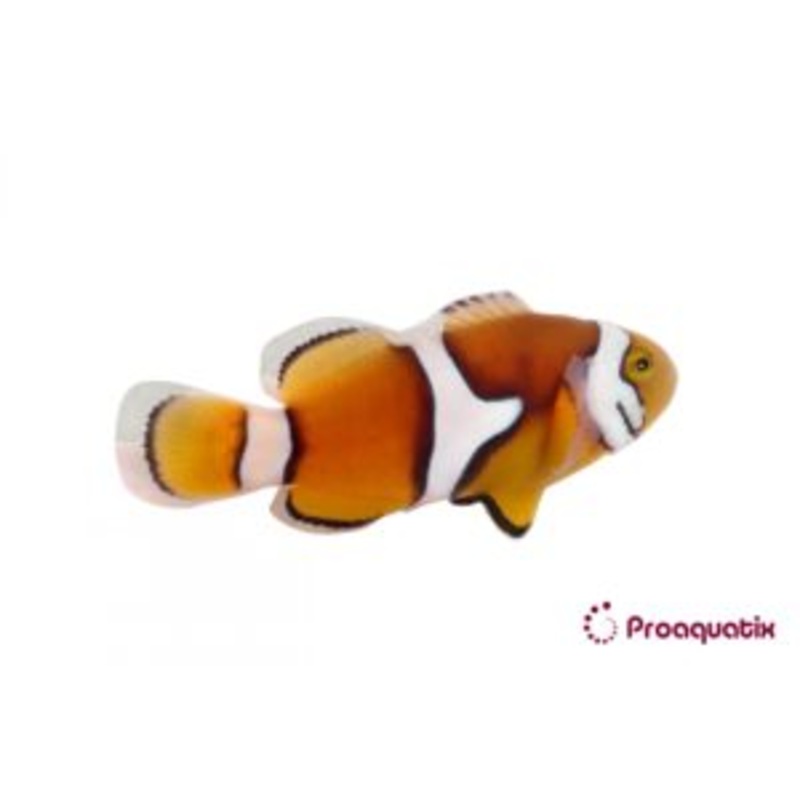
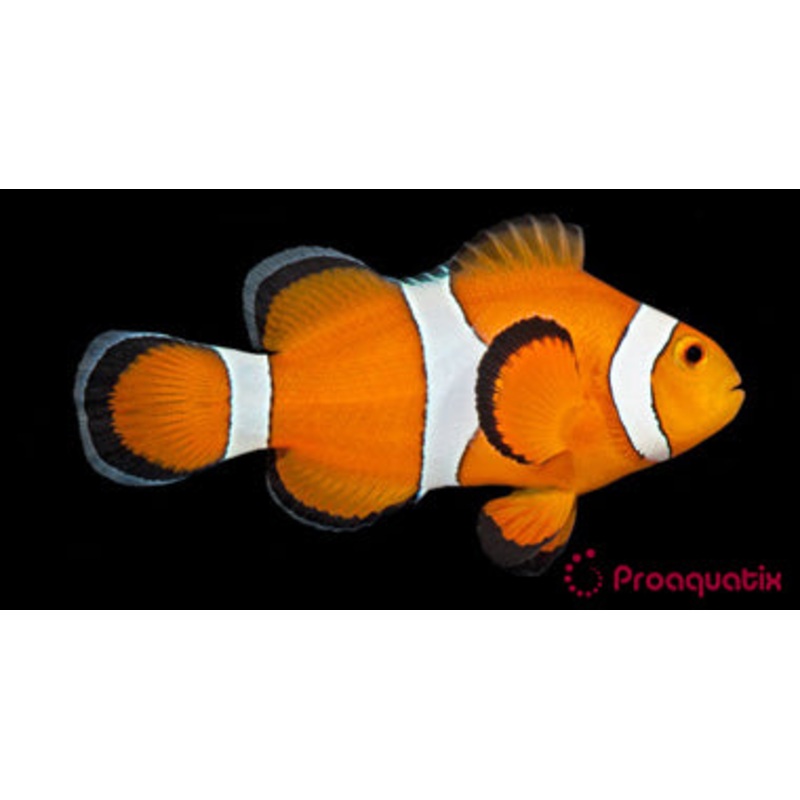
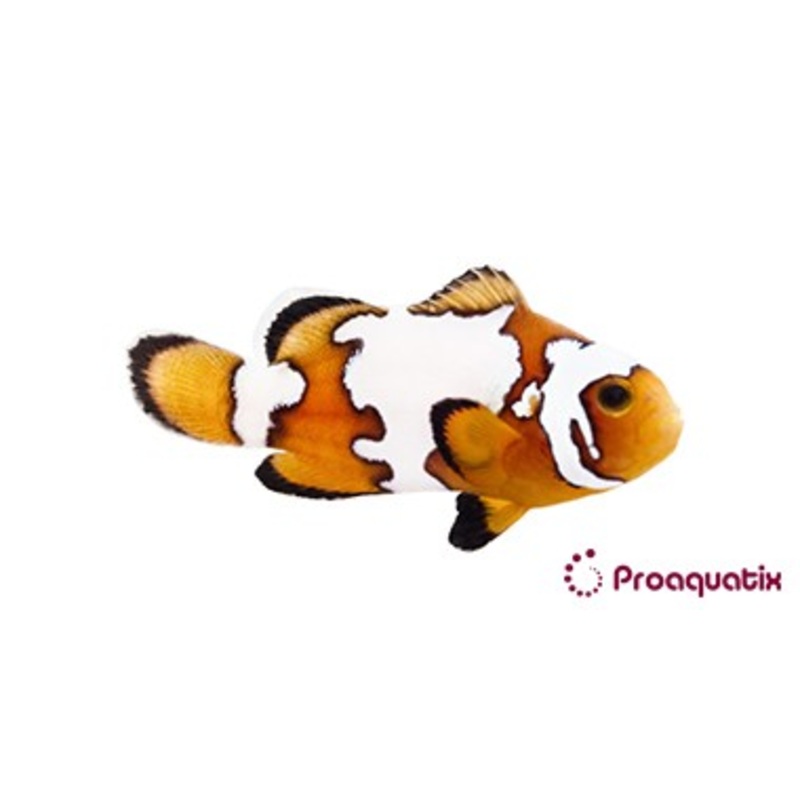
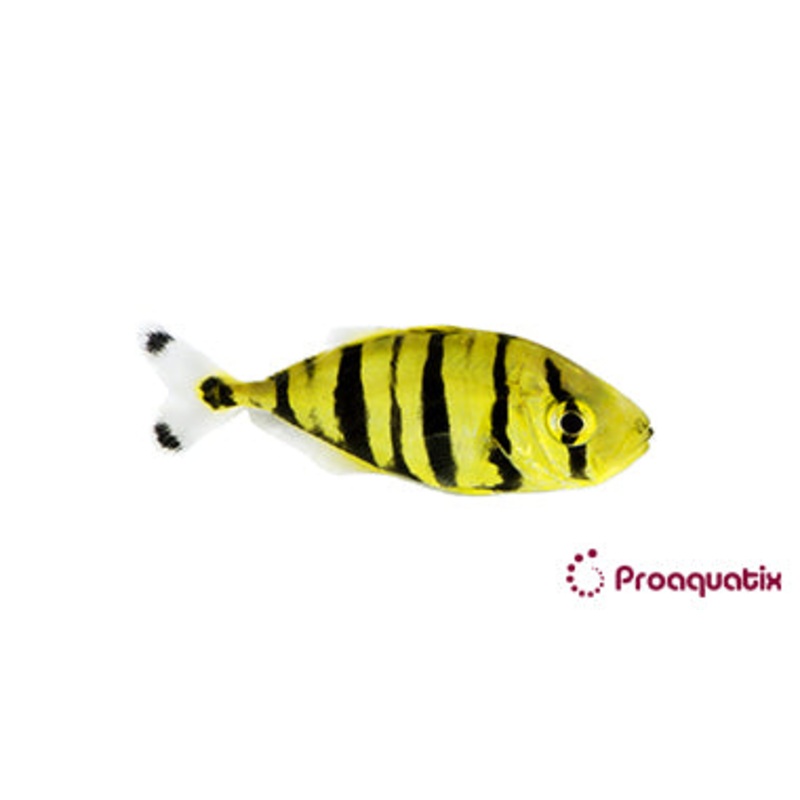
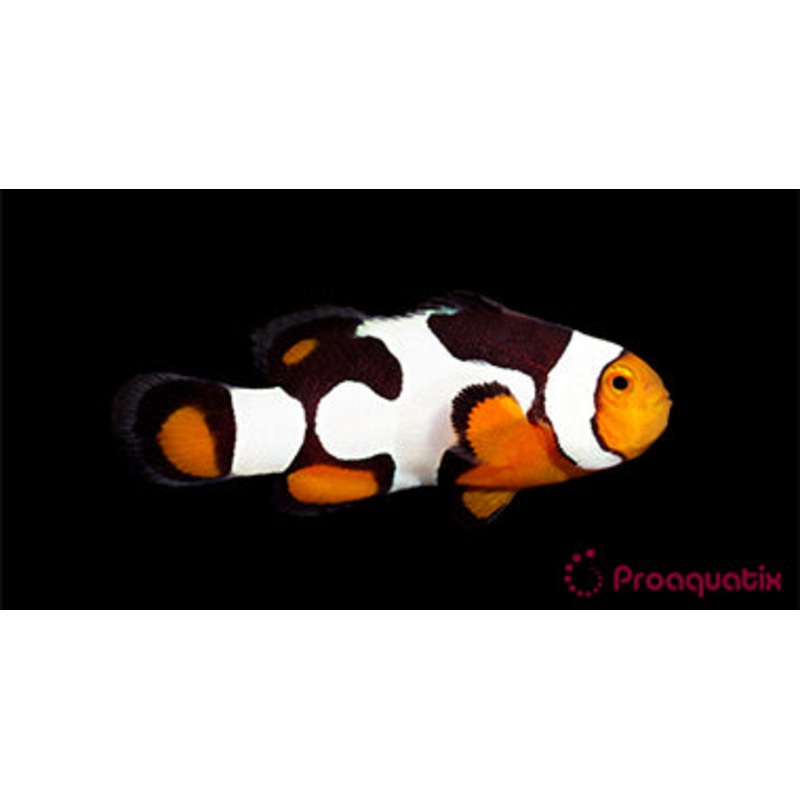
Reviews
There are no reviews yet.